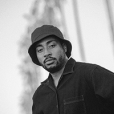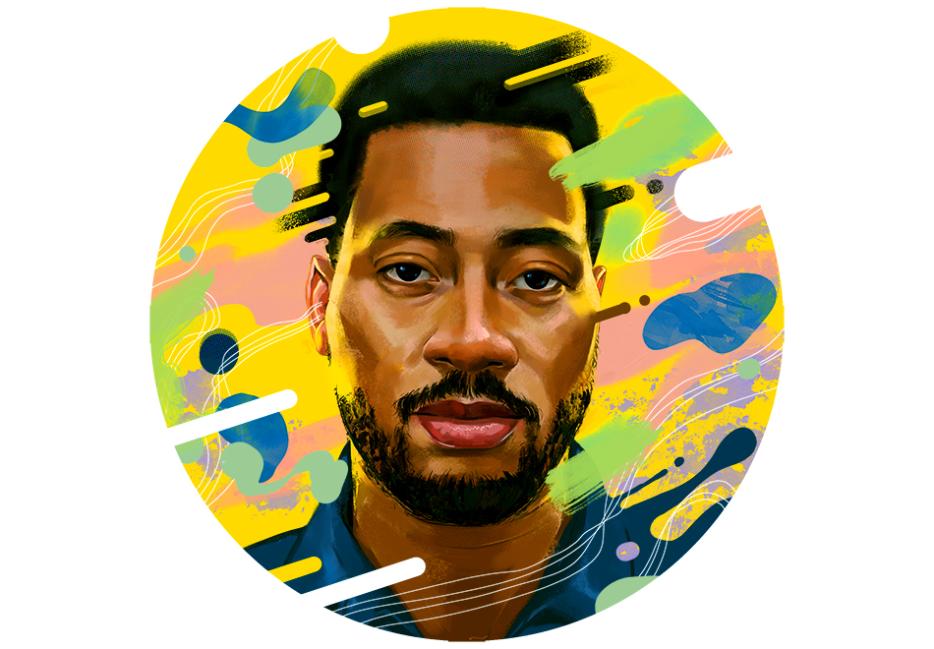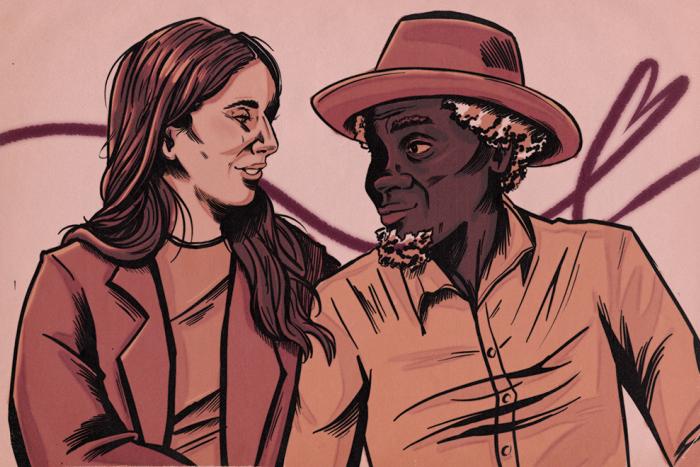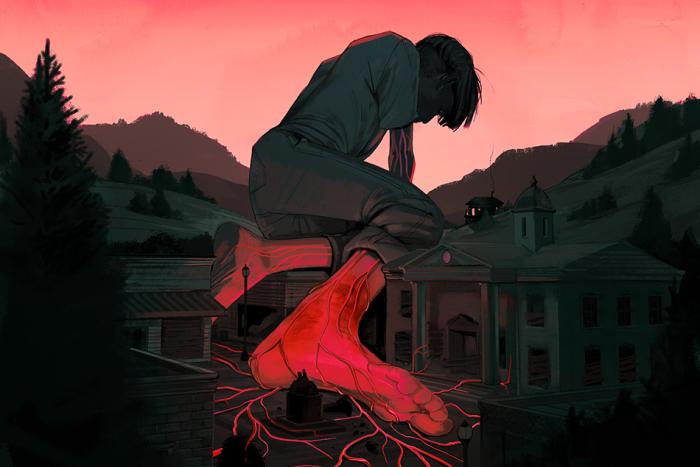Welcome to Mind in Bloom, a column deconstructing current events, music and art.
I’ve always found it strange trying to explain moments of creative inspiration that felt like signals from the beyond to my skeptical audience of friends. I was in London, UK, a few years ago and bought a vintage designer jacket from a charity shop. After close examination and some Googling, I became paranoid that it was inauthentic and returned it. This experience got me thinking about the thin line between fake and real online and unexpectedly led me on the path toward the album that I’m working on now.
There was the time I was asked to officiate a wedding in Los Angeles and nearly fell down a cliff into Topanga Canyon while staring at my phone. That inspired me to write about technology’s effects on our lives in my song “Infinity Pool.” One particular walk along Queen Street West where I noticed a shockingly high concentration of weed stores led me to write the politically charged “Skyline” in one sitting as soon as I awoke the very next morning. Even a stray sentence overheard at a house party could be the impetus for a great creative endeavour, but you’ll only see it if you know to look for it.
The internet was set ablaze recently by an insight into the creative process—an old rich white man at the top of his field proudly claiming total ignorance about his profession on national television.
The takes came in hot and hurried. No person of colour could ever say that they had no idea what they were doing in their workplace. He was the poster boy for white male privilege. Commenters claimed that he was a Republican who was responsible for turning Kanye West into a Trump supporter. Folks unearthed a quote, of him suggesting that a band should change their name to something more racially provocative, as evidence of his low moral character. Worst of all, they even found photos of him in front of a mixing board, irrefutably proving his technical acumen. Someone even said he ruined Yeezus.
So many people rushed to invalidate this isolated statement. People were outraged. But how would they have responded if he’d said the opposite? “I’m a musical genius. After producing hit albums for Red Hot Chili Peppers, Slayer, Johnny Cash and others, I would say that I know everything about making music. I’m the best—that’s why people hire me.” Wouldn’t that have been more distasteful? Maybe what’s so triggering about this shoeless man lying on the couch with his eyes closed in the studio is that we all wish we could reach his level of nonchalance, to go on TV and say, “No special set of skills over here, just vibes.”
A far cry from the explosive, angry discourse that preceded it online, Rick Rubin’s new book The Creative Act: A Way of Being is a surprisingly reassuring and comforting read about the spiritual origins of creativity.
The Creative Act isn’t a straightforward guidebook on how to become a better producer, musician or artist. There’s little in the way of direct anecdotes about Rick Rubin’s experiences in the studio shepherding world-famous acts to their greatest achievements. He avoids naming names unless it’s absolutely necessary. You won’t find any technical jargon or learn about mixing techniques. Instead, the book is a celebration of the intangible factors that foster creativity that aren’t often discussed.
With all the industry machinations that can get in the way of art being expressed fully, it can be easy to forget that music itself is quite a magical thing: an untouchable, invisible element that emerges out of the ether and carries an immense power to move us emotionally, intellectually and physically. Rubin’s book encourages us to listen to ourselves and be more intentional with how we develop our ideas, whether we’re artists or not.
You get a feeling of what it might be like to be produced by Mr. Rubin when absorbing the various kōans in the book. The author doesn’t suggest that his way is the only way of doing things. He writes about building habits that put you in the ideal state of mind for creativity to flourish. Anyone familiar with the mindfulness movement will recognize echoes of contemporary self-help language in Rubin’s writing, especially when he compels us to look to the cycles of nature for inspiration.
While any experienced artist will likely already be familiar with many of the principles within The Creative Act, there’s something revitalizing about having your mind reoriented by the consistency of Rubin’s spiritual perspective. The book points the reader back toward ways of thinking that they may have always suspected were true but perhaps had ignored or forgotten in the name of logic and maturity.
Rubin’s ideas often go against conventional wisdom, particularly the repeated adage that “the audience comes last” when it comes to creating. Rather than thinking of everything you work on as the piece that will define you for eternity, Rubin advises us to think of each release as an “experiment” that functions as “a diary entry of a moment of time, a snapshot reflection of who the artist is for that period.” While the music industry exhorts artists to produce as much music as possible to stay relevant, Rick helpfully reminds the aspiring artist that “commercial success is completely out of your control.”
The book does a great job of illustrating how our own psychology can impact what we create. The “78 Areas of Thought” in the book seem designed to shift the reader to the point where their mind is free enough to operate from a childlike, open perspective that helps to remove the pressurizing influence of commerce and expectation from the creative process.
I was particularly struck by the section about having your antenna up to be aware of “apparent coincidences appearing more often than randomness allows—almost as if there is another hand guiding yours in a certain direction.” I haven’t seen many people in the music world acknowledge the unexplainable, otherworldly aspects of creation so to see it be one of the main parts of Rubin’s book is heartening.
The Creative Act showcases what often takes a lifetime of creating to realize: that the artist themselves isn’t always the driving force behind what they create. It’s a welcome reminder that what we do as artists is inherently a spiritual exercise. “We are required to believe in something that doesn’t exist in order to allow it to come into being” is how Rick puts it. With The Creative Act, Rubin digs into his vast well of experience, not to take credit for his many successes but in an effort to explain the unexplainable—to gave a face to the heretofore unseen.







